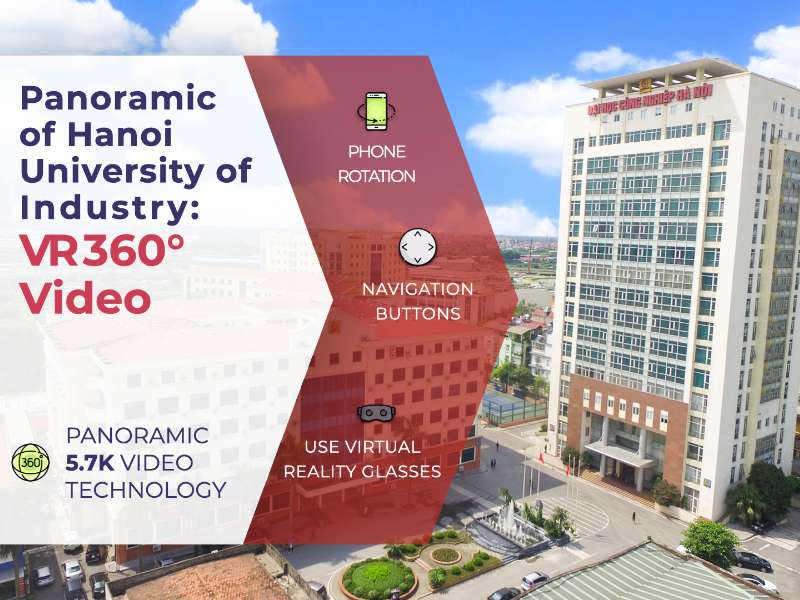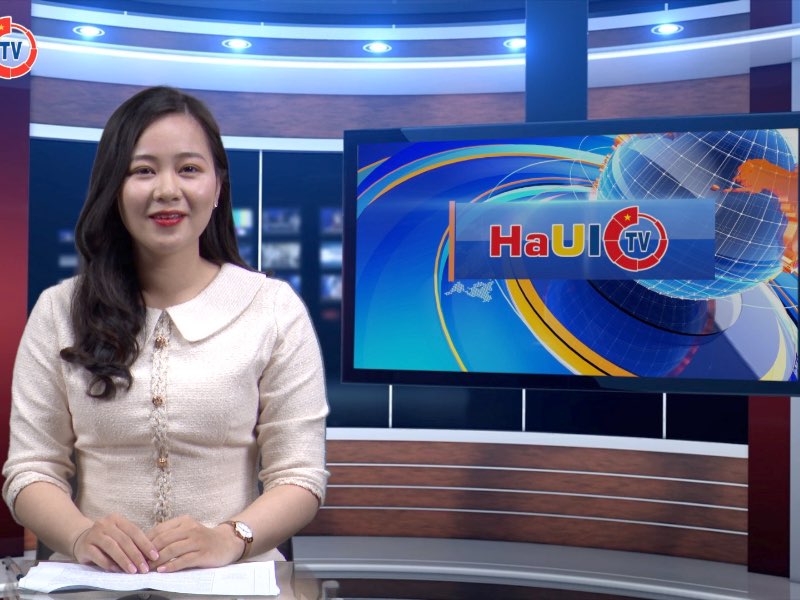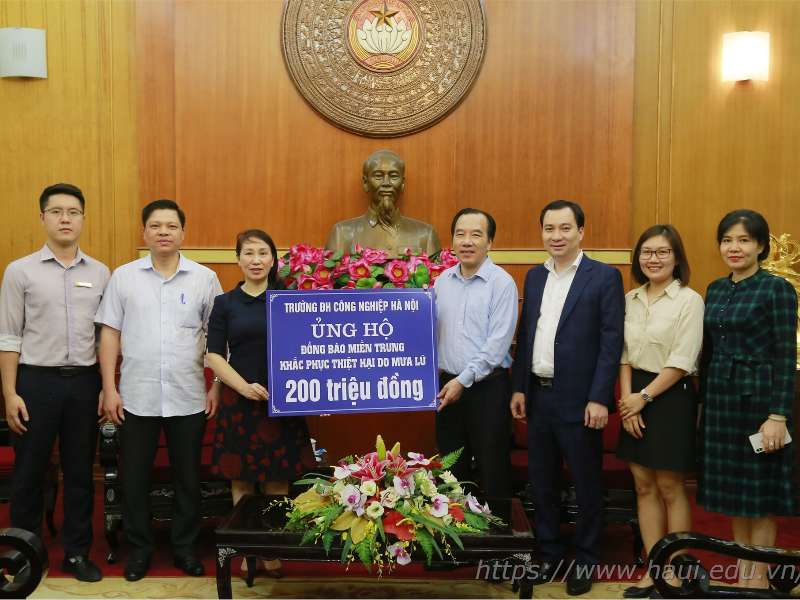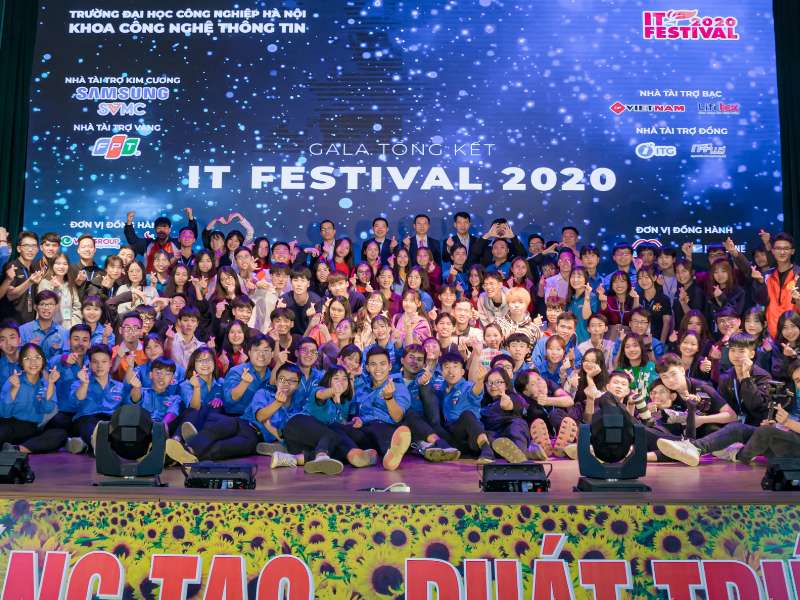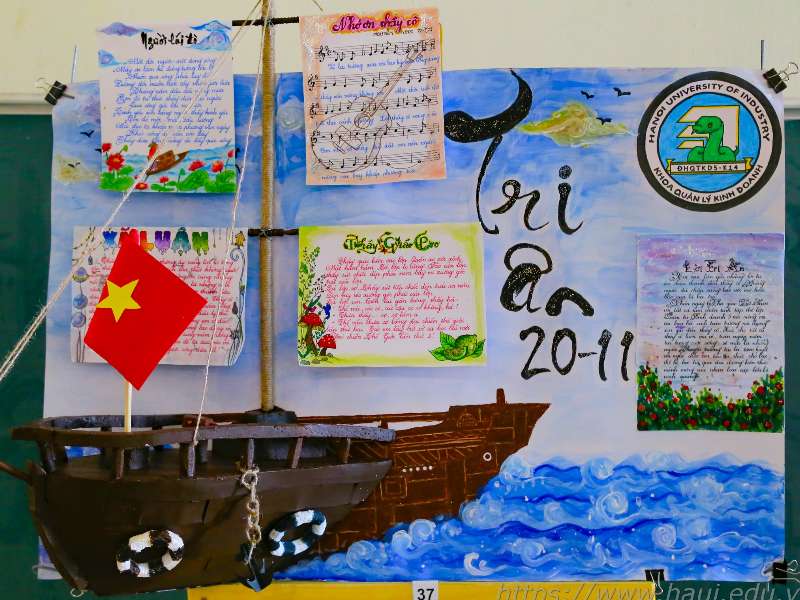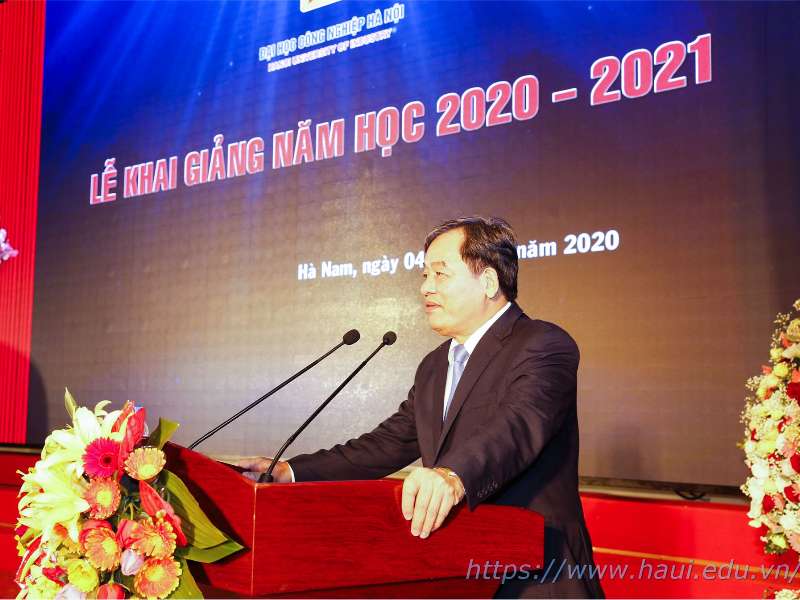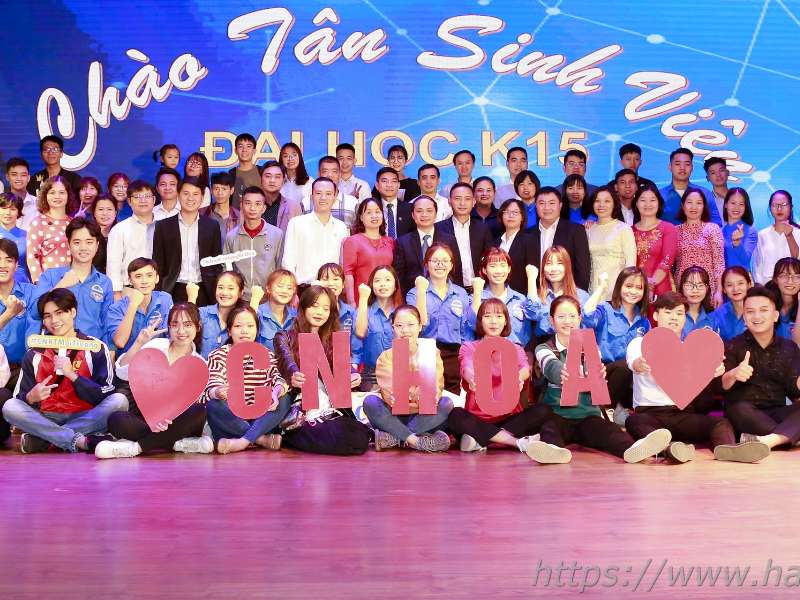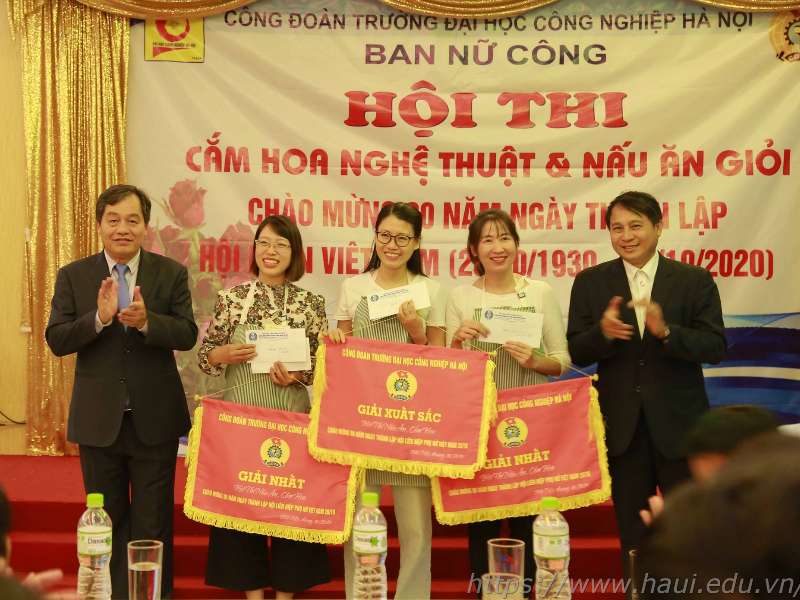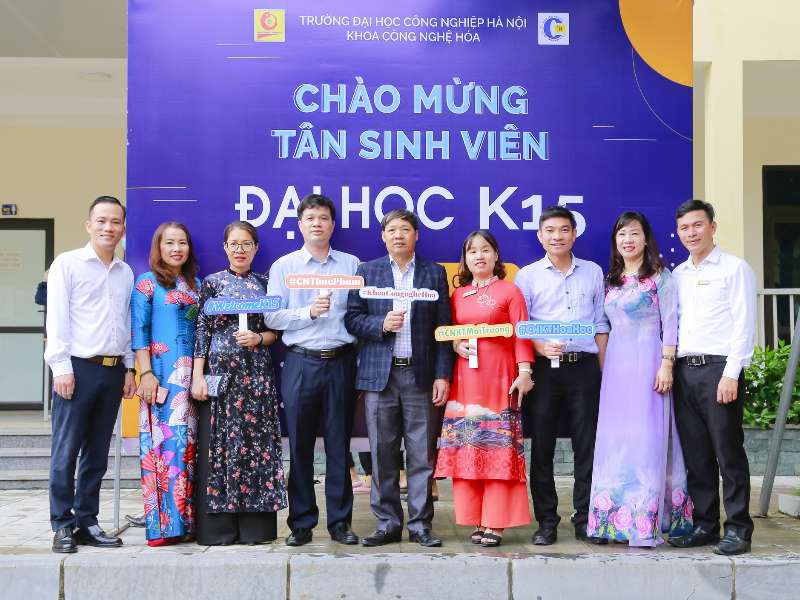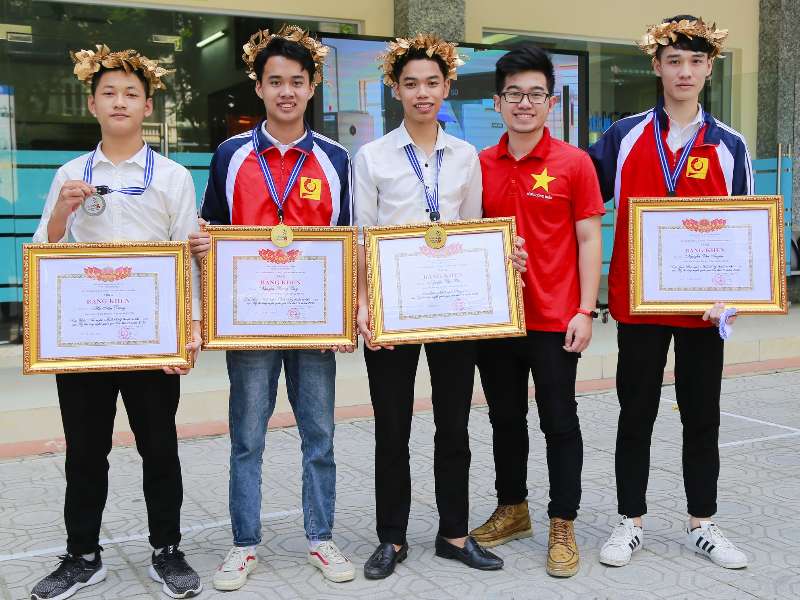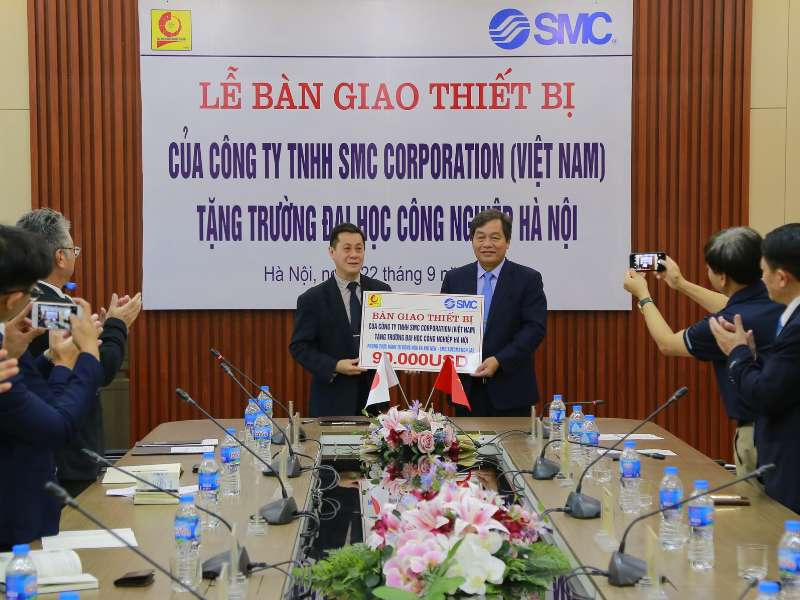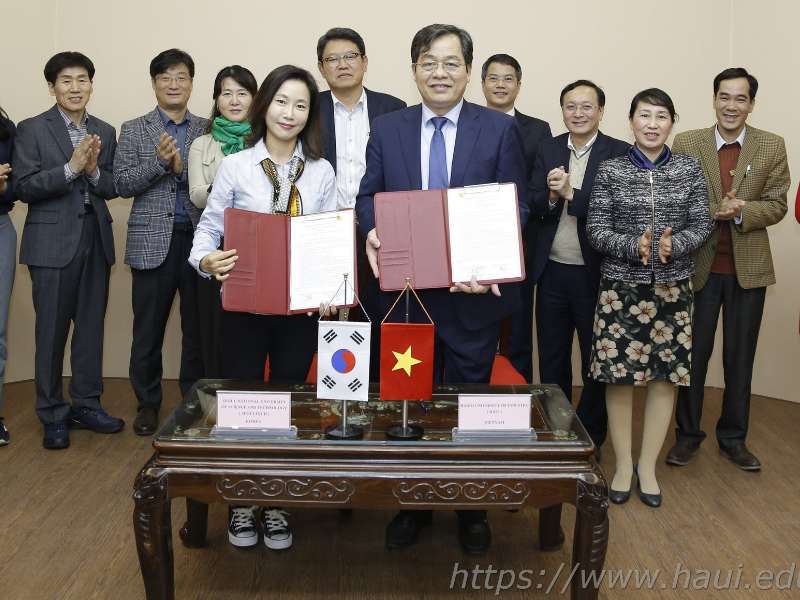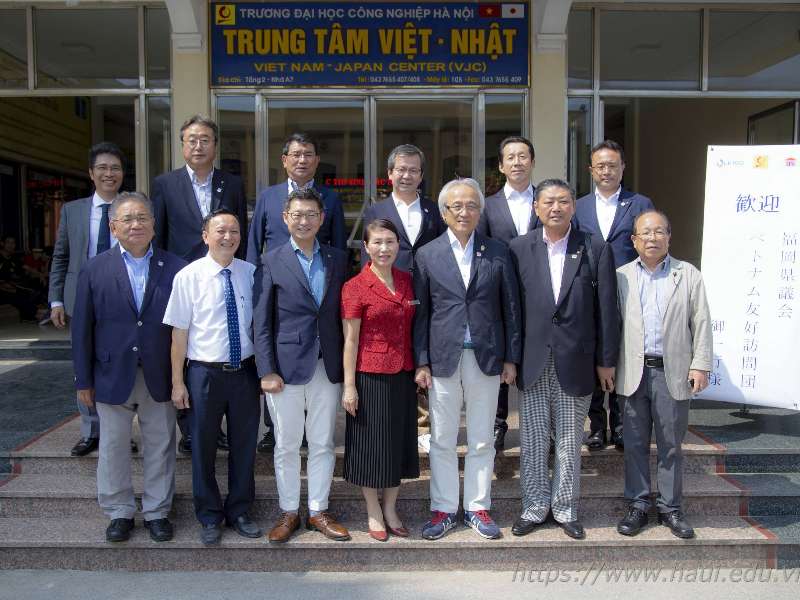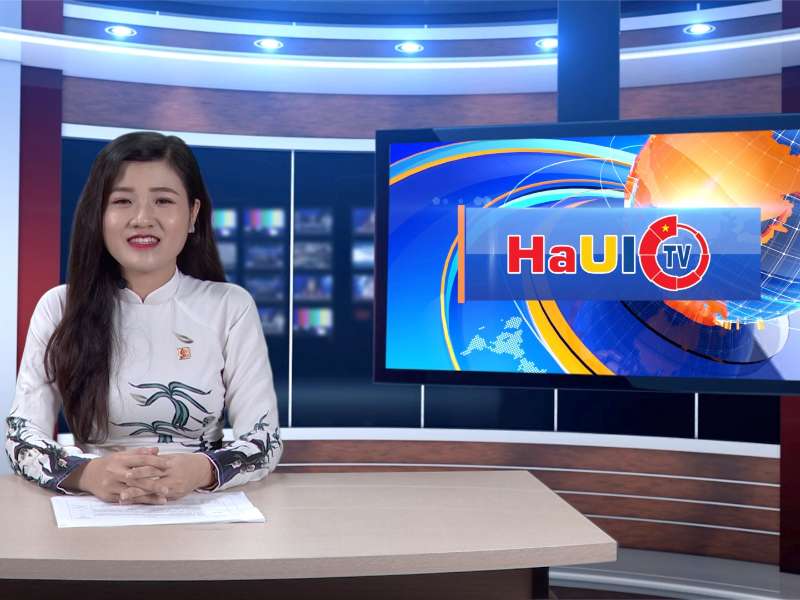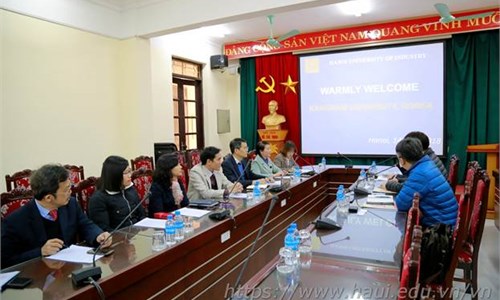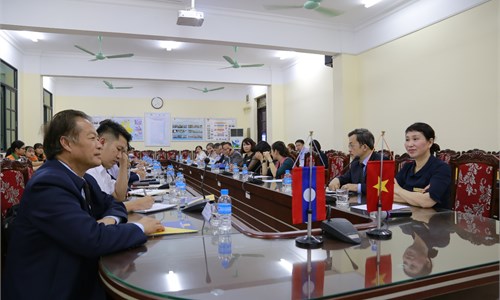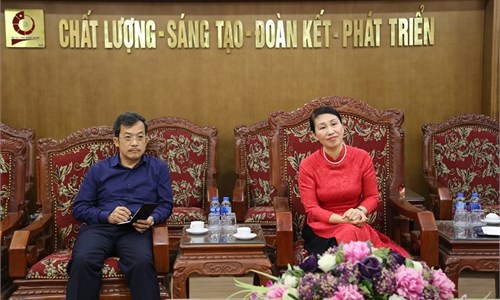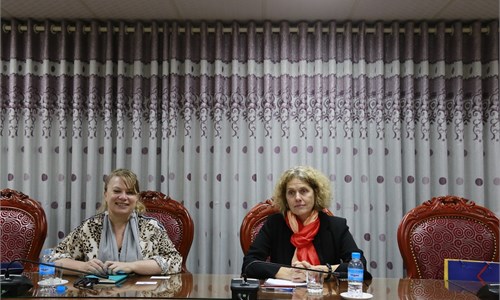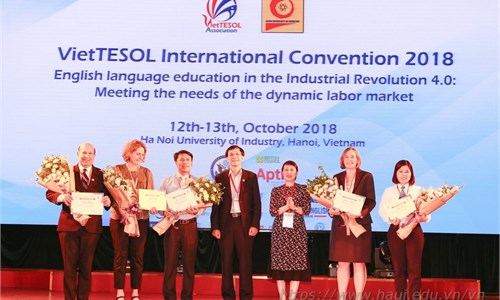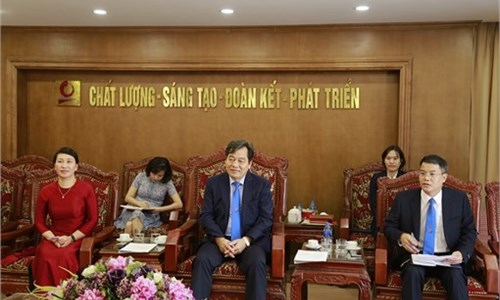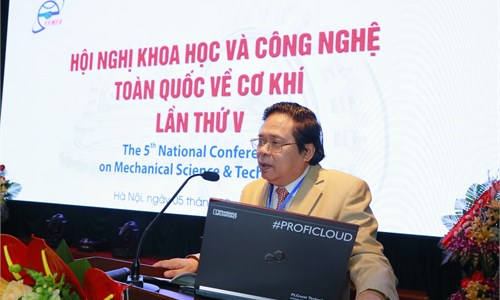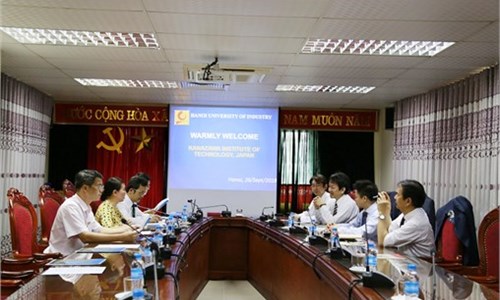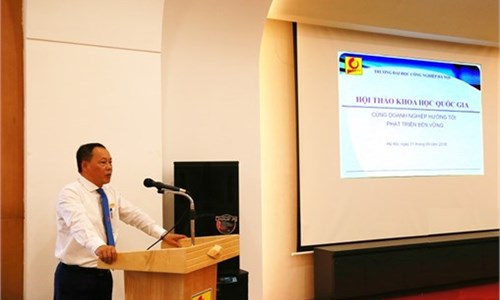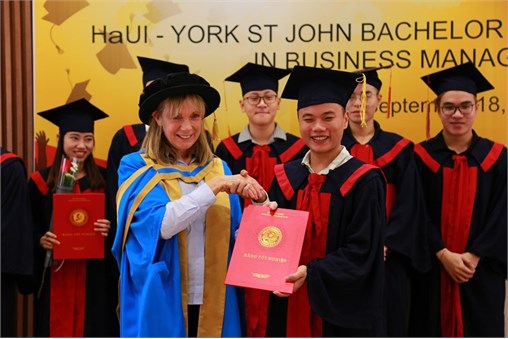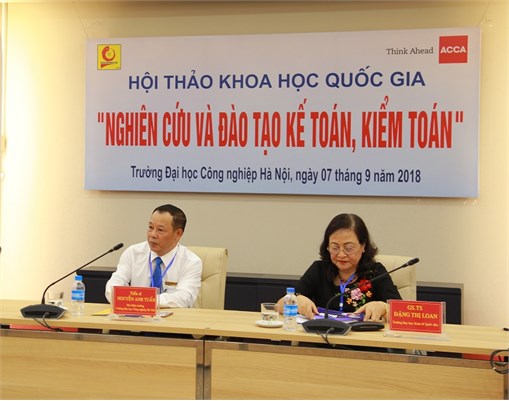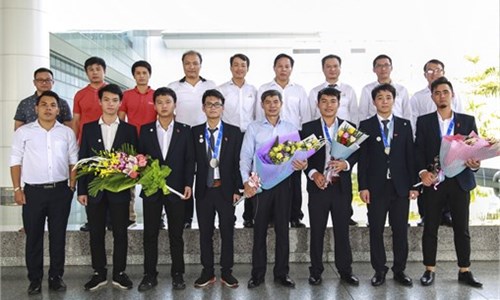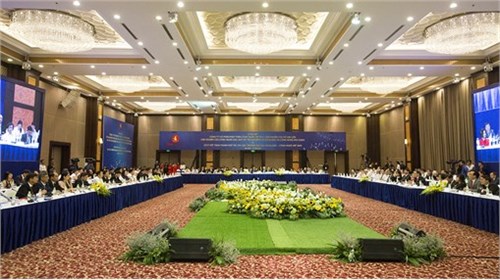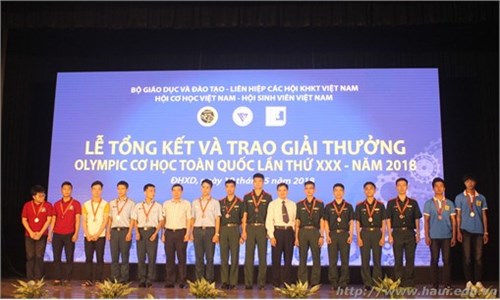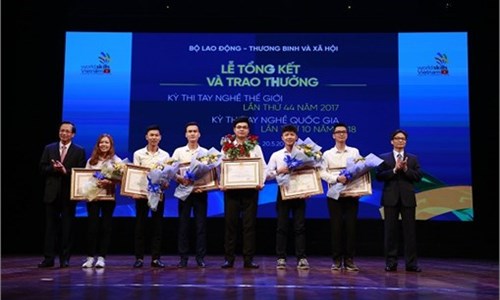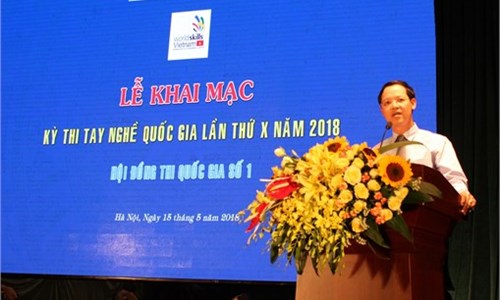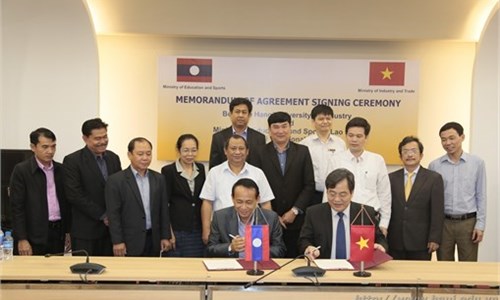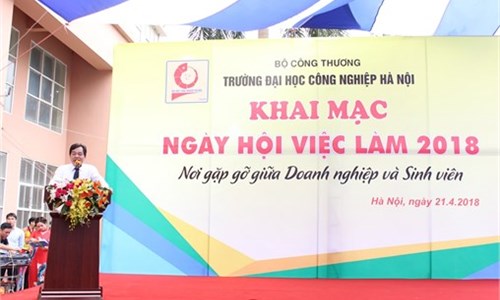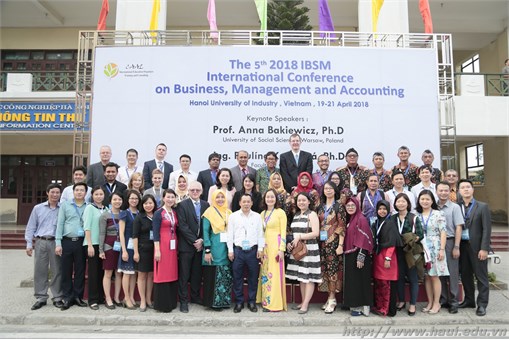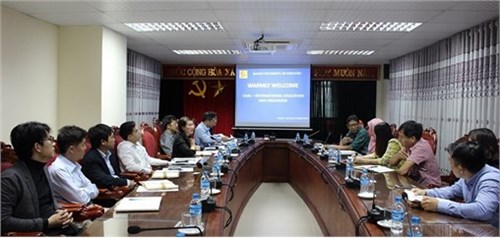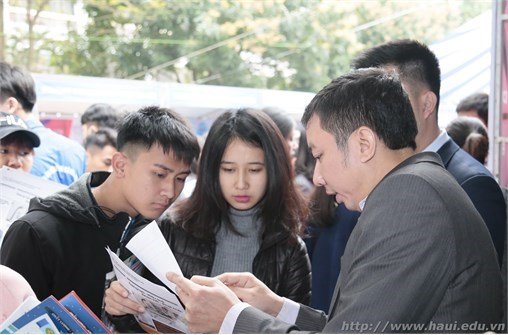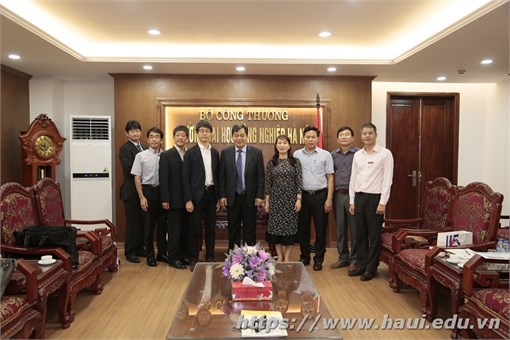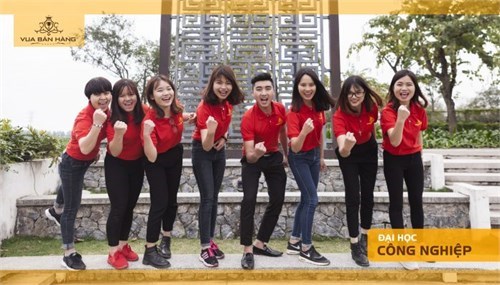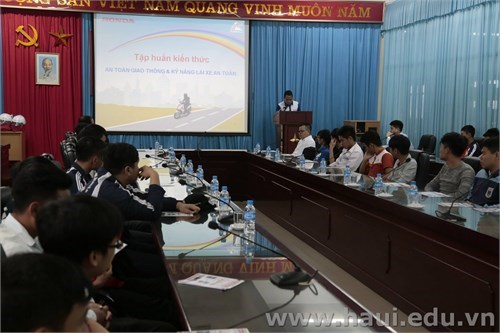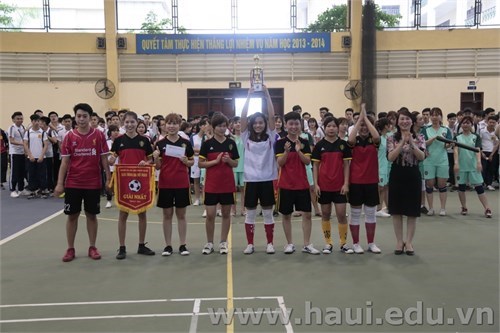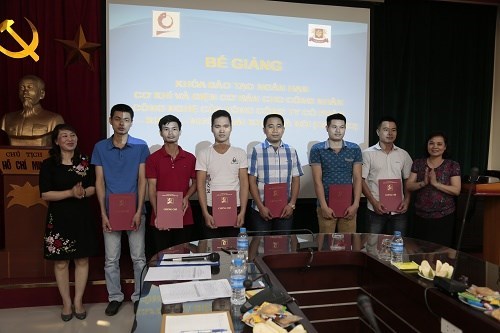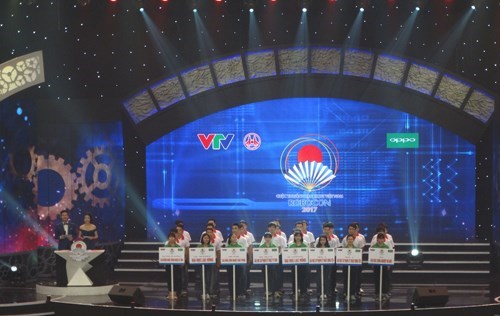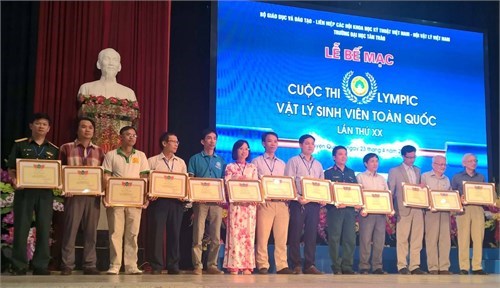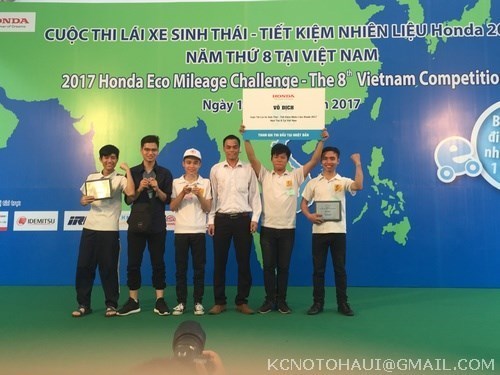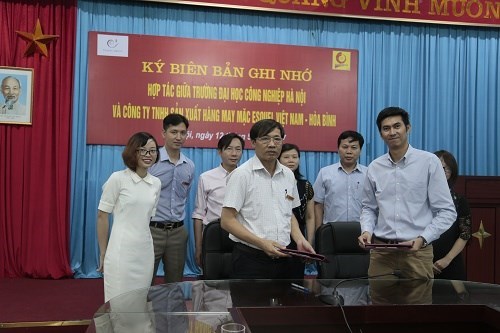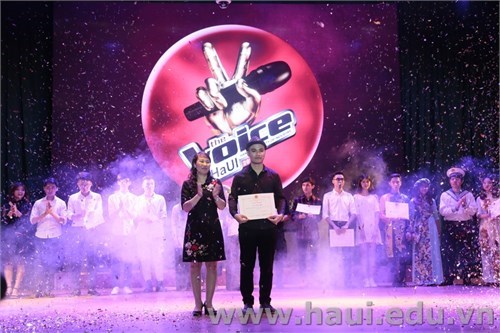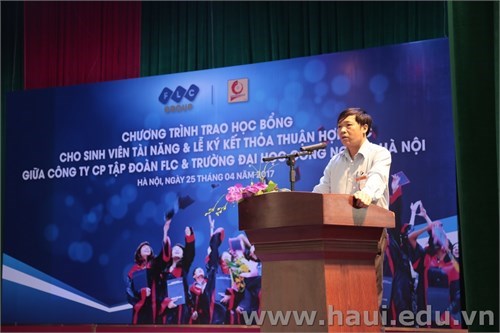The Third APSIPA workshop on signal and Information Processing 2024
The workshop attracted over 100 delegates, speakers, scientists, and leading experts in the field of signal and information processing from prestigious universities and research institutes in Japan, Hong Kong, South Korea and Vietnam.
On the afternoon of July 24, the Third APSIPA workshop on signal and Information Processing (APSIPA – the abbreviation for the Asia-Pacific Signal and Information Processing Association) was held at Hanoi University of Industry. Nine keynote speeches were presented at the workshop, covering key topics such as signal processing systems, multimedia security, signal and information processing in education, video encoding techniques.
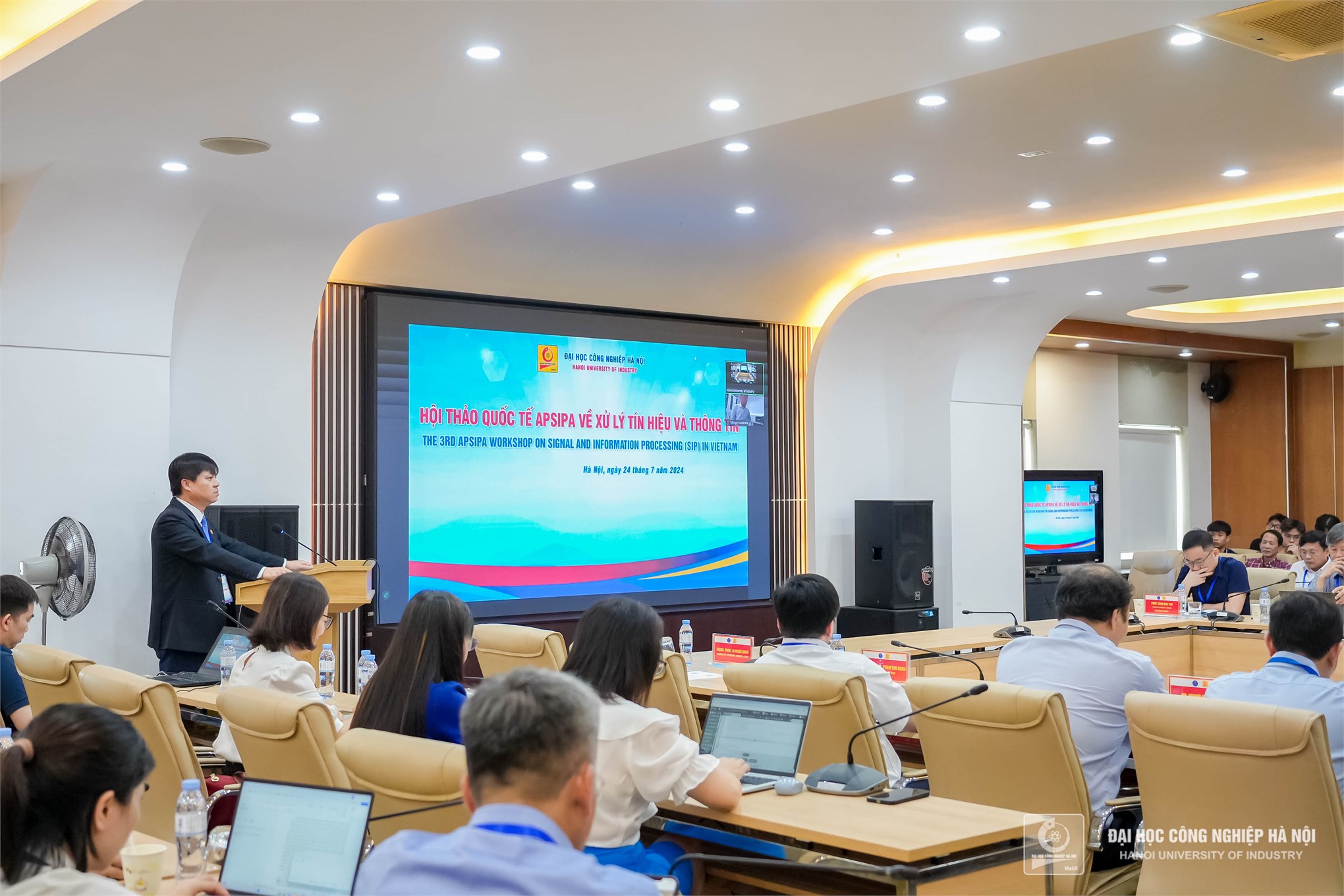
The Third APSIPA workshop on signal and Information Processing 2024 was held at Hanoi University of Industry
The rapid development of information technology and artificial intelligence (AI) has created great opportunities but also poses many new challenges for the field of signal and information processing. Deep learning models, image and audio processing technologies, and wireless communication systems are reshaping the approach to solving complex problems.
The Asia-Pacific Signal and Information Processing Association (APSIPA), established in 2009, has quickly asserted its important role in promoting research and education in signal processing, information technology, and communication in the Asia-Pacific region.
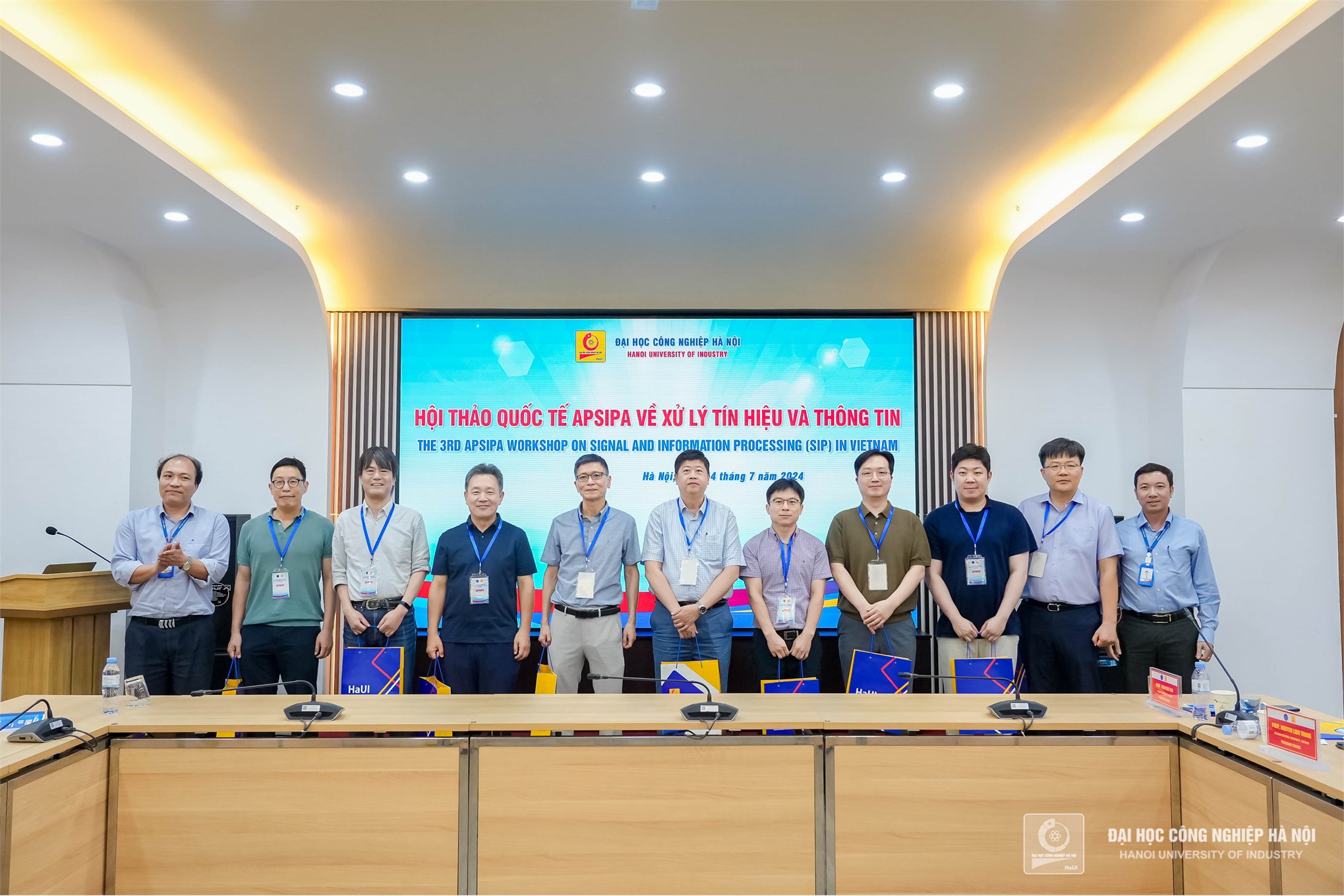
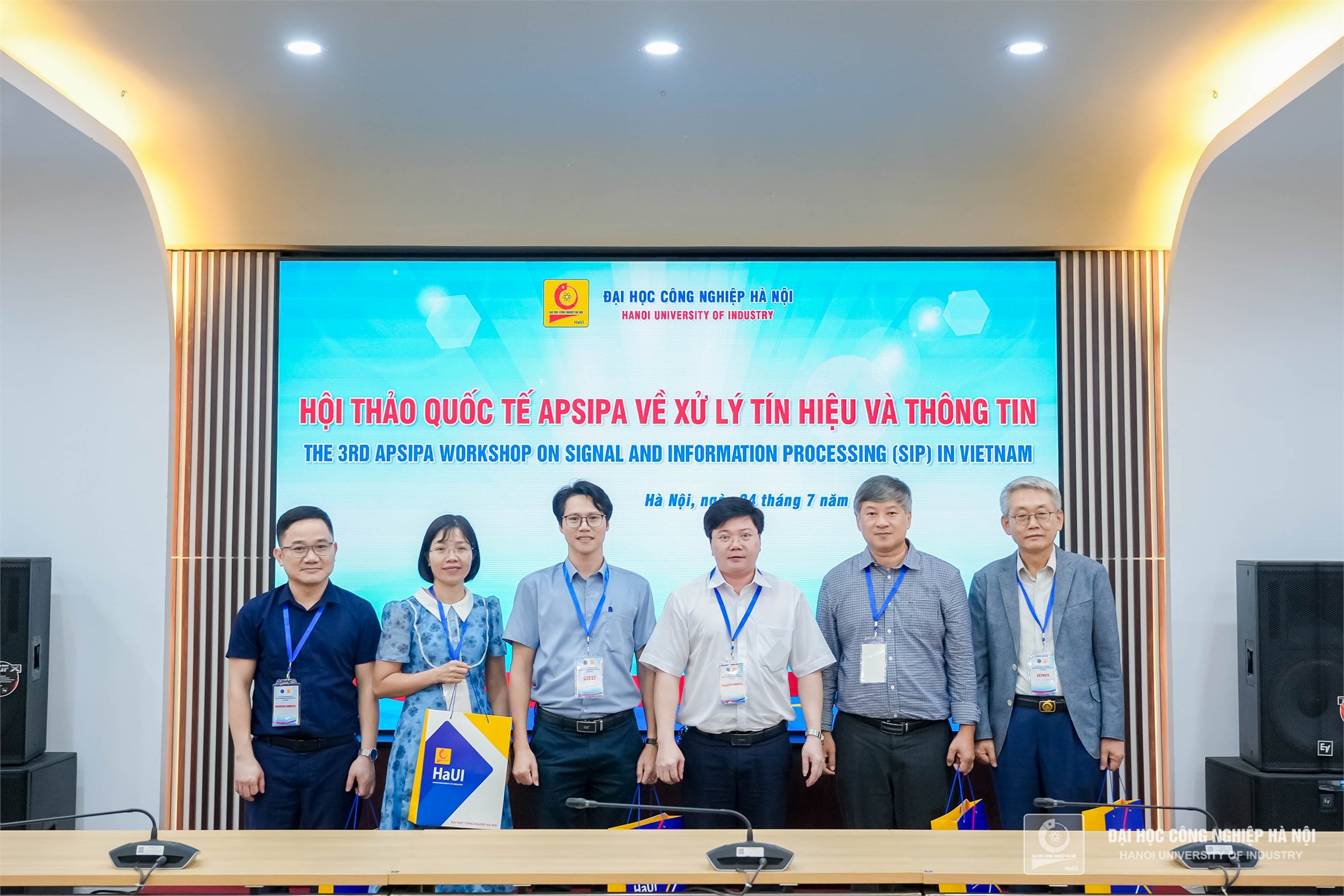
The workshop featured nine guest speakers from Japan, South Korea, Hong Kong, and scientists from Vietnam
APSIPA annually organizes conferences and workshops, providing a solid foundation for the scientific community in the region and promoting international cooperation and academic exchange among researchers and leading experts.
Speaking at the event, Assoc. Prof. Dr. Pham Van Dong, Vice Rector of Hanoi University of Industry, affirmed: "The workshop will be an important platform to promote innovation, explore modern trends, and lay the foundation for building cooperation opportunities in research and practical applications."
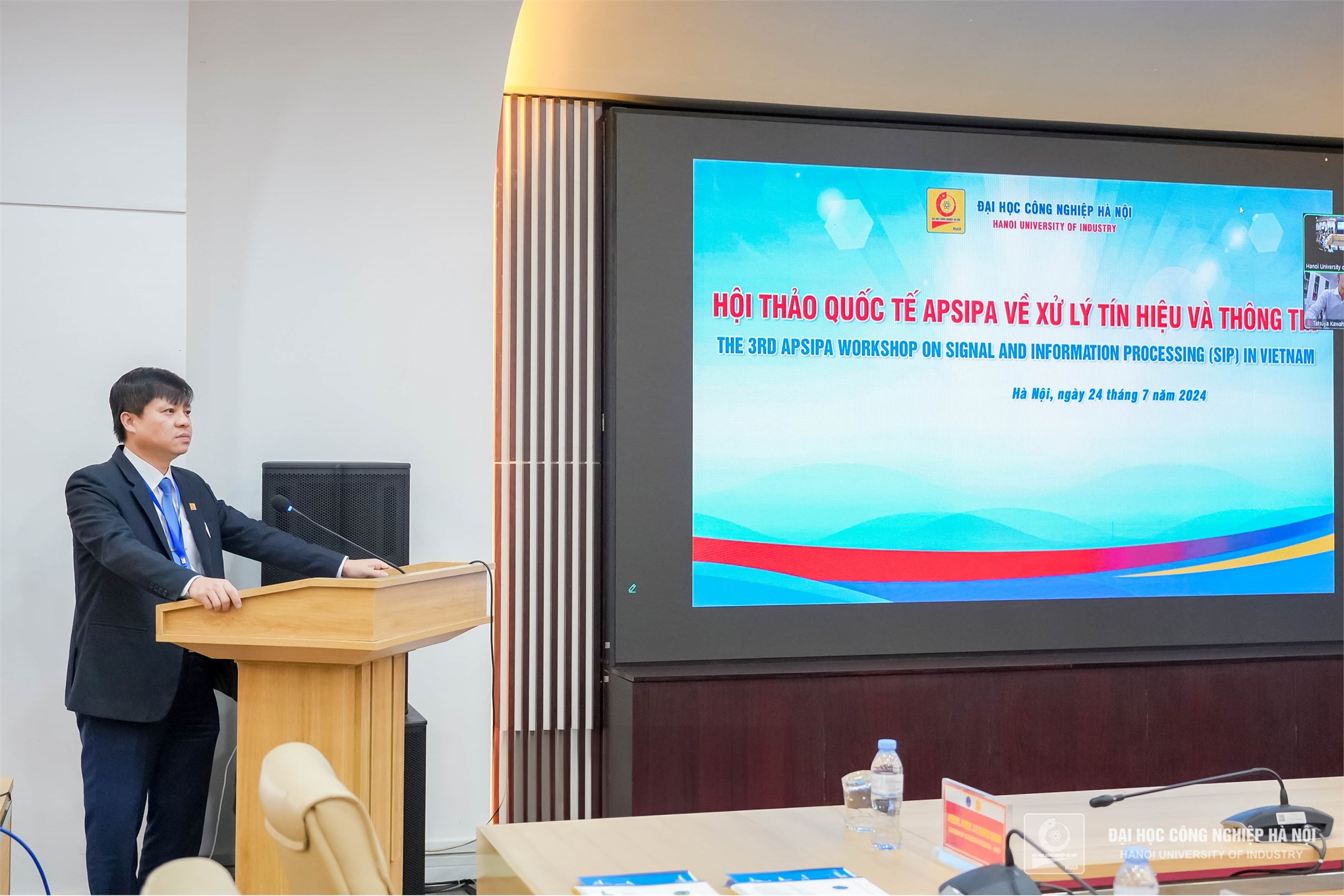
Assoc. Prof. Dr. Pham Van Dong, Vice Rector of Hanoi University of Industry delivered the opening speech at the event
At the workshop, nine reports were presented by experts from South Korea, Japan, and Hong Kong. Additionally, 24 posters showcasing the latest research findings were published by leading scientists and experts in the field.
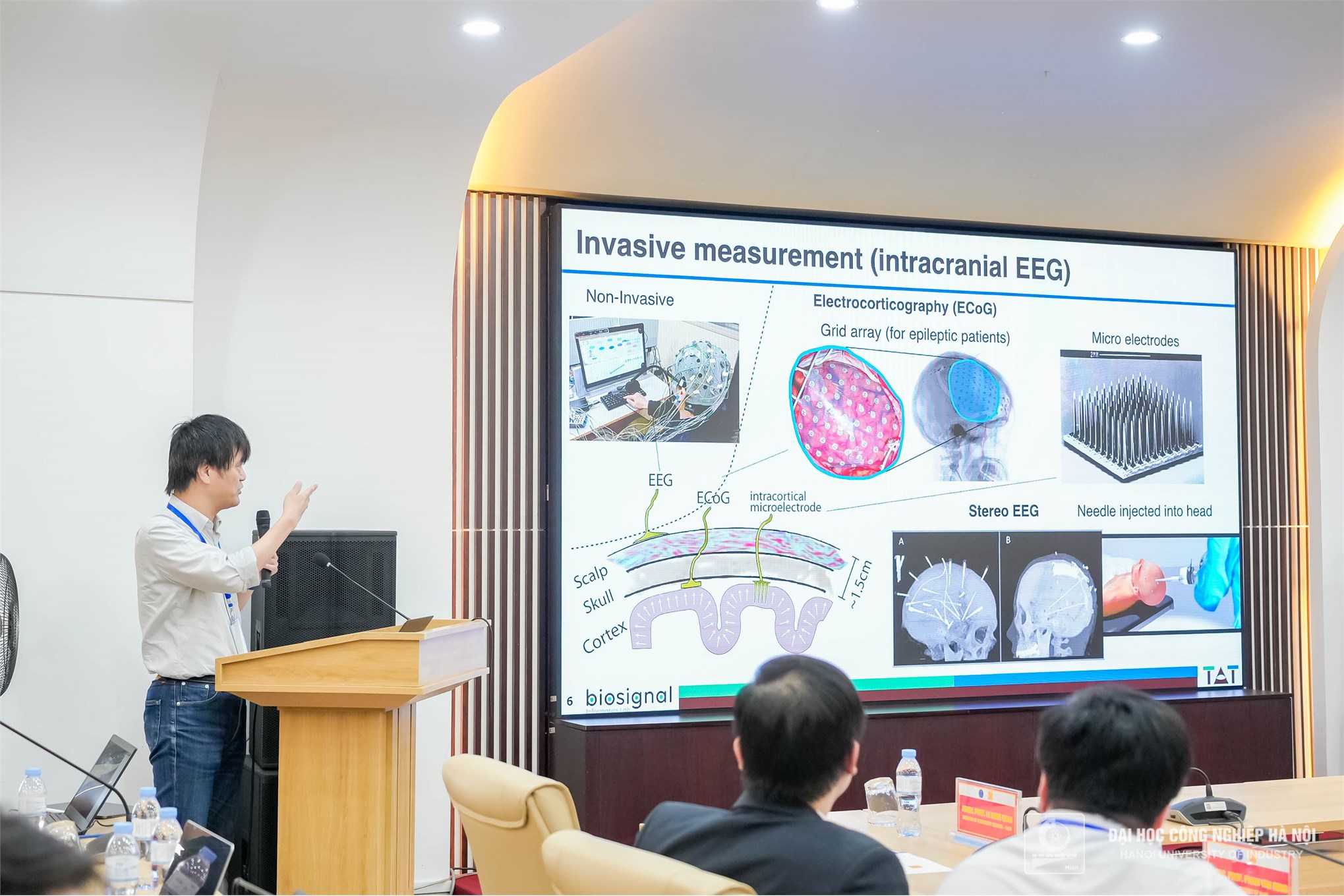
Prof.Toshihisa Tanaka from Tokyo University of Agriculture and Technology presented on "Decoding and Synthesizing Speech from ECoG using Transformer-based Models."
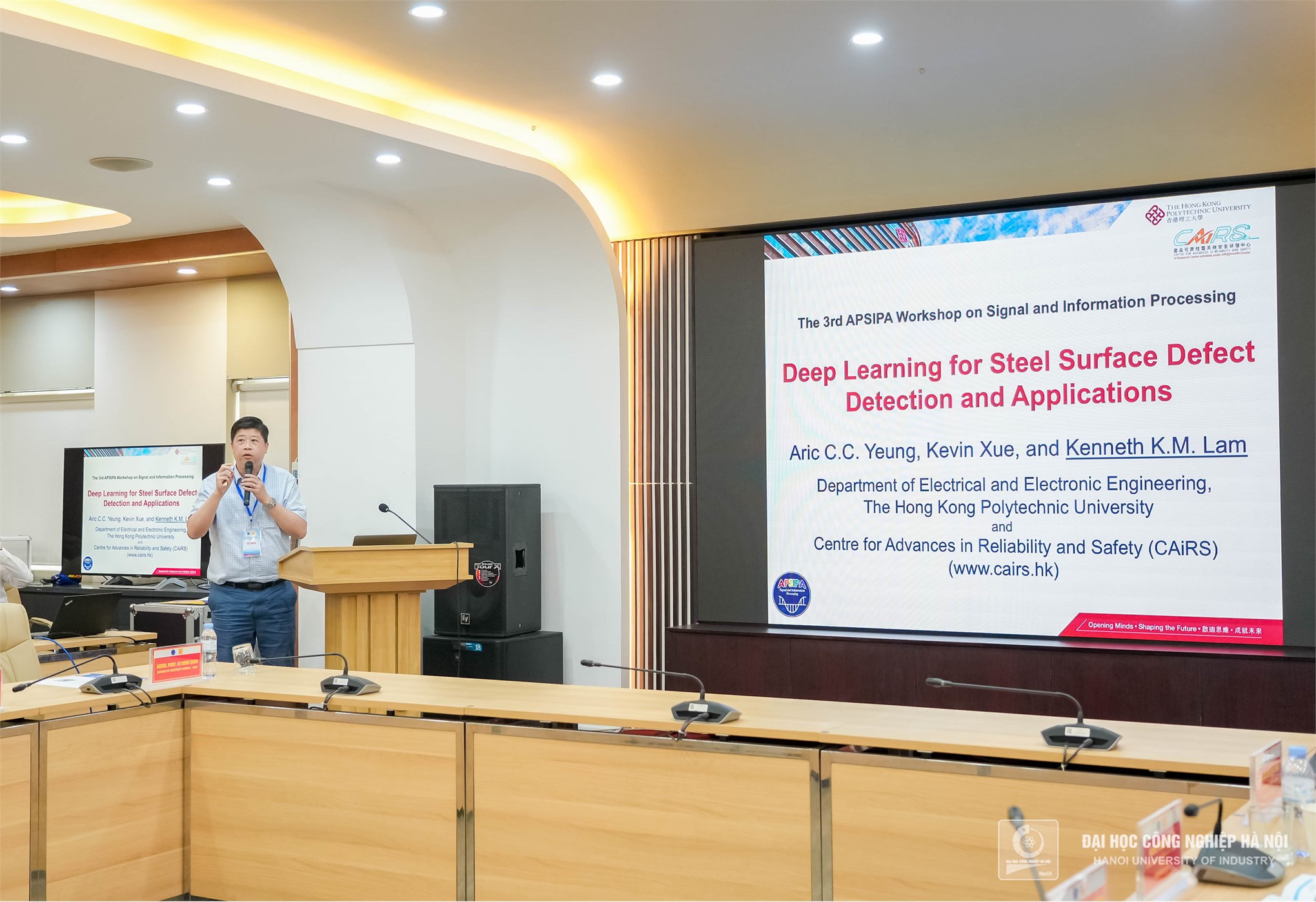
Prof. Kenneth Lam from Hong Kong Polytechnic University gave a presentation on "Deep Learning for Steel Surface Defect Detection and Applications."

Prof. Nam Ik Cho from Seoul National University, South Korea, presented his groundbreaking work on "Supervised and Self-Supervised Image Denoising."
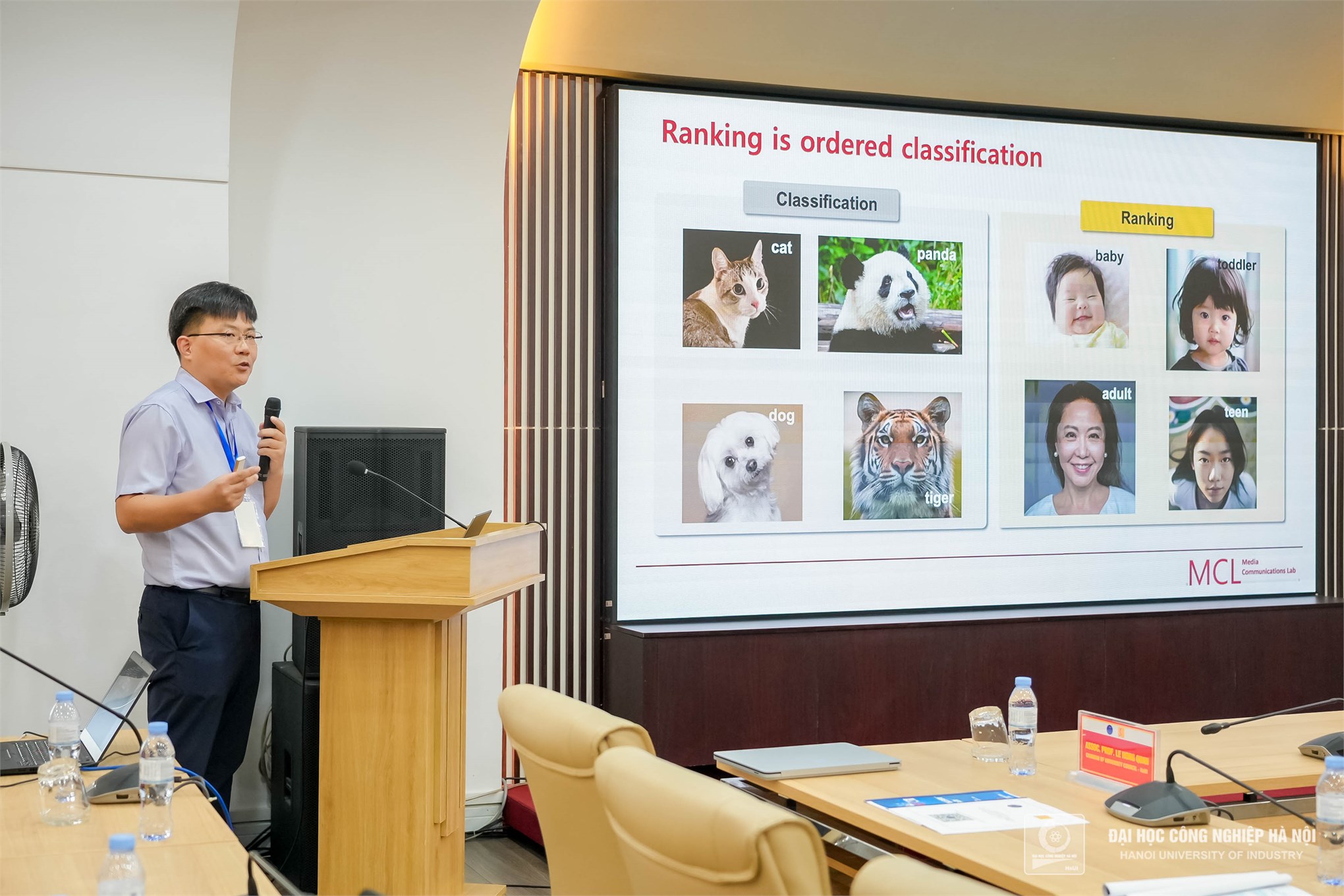
Prof. Chang-Su Kim from Korea University gave a talk on "Order Learning and Its Applications to Computer Vision."
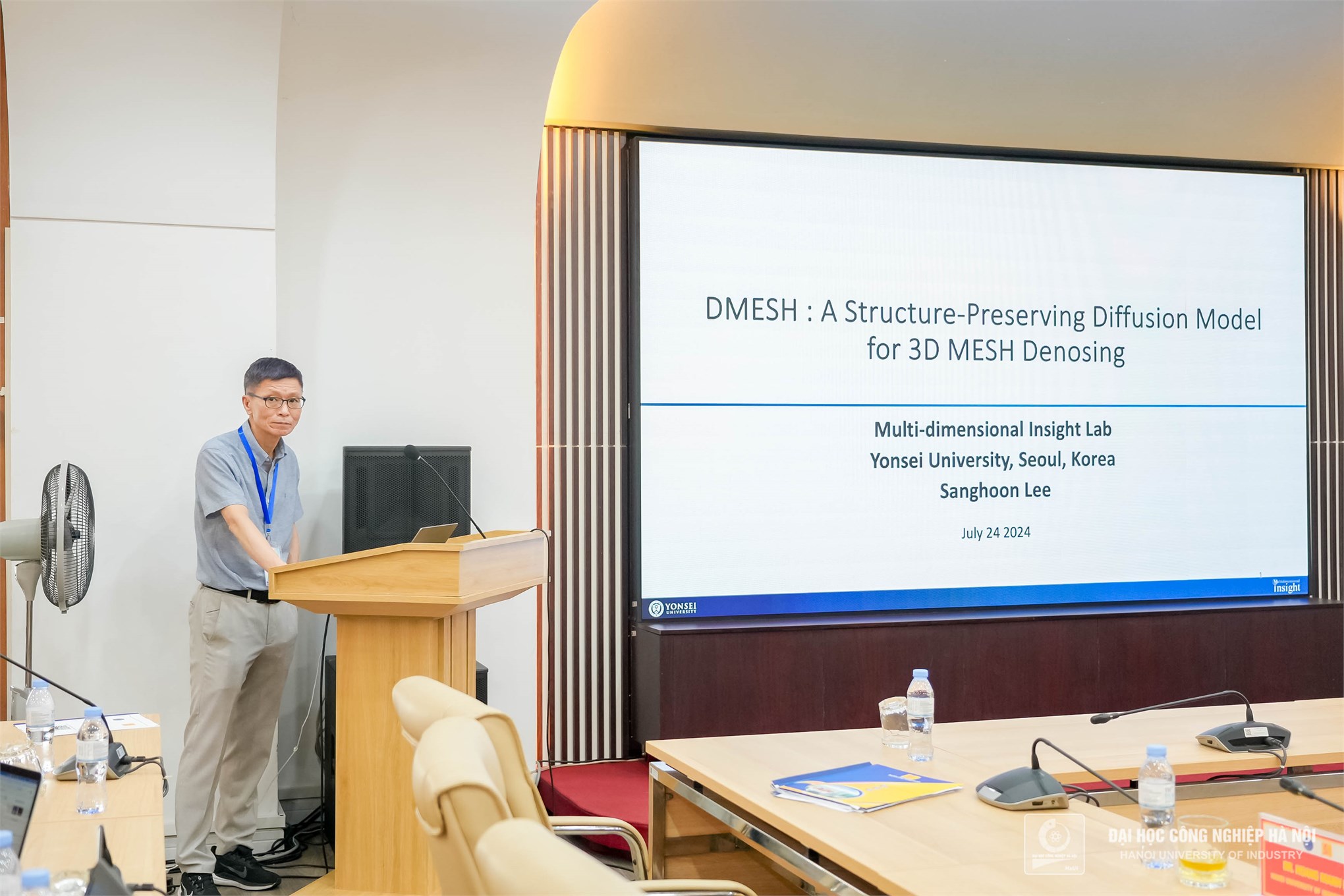
Prof. Sanghoon Lee from Yonsei University, South Korea, delivered a presentation on "DMESH: A Structure-Preserving Diffusion Model for 3D Mesh Denoising."
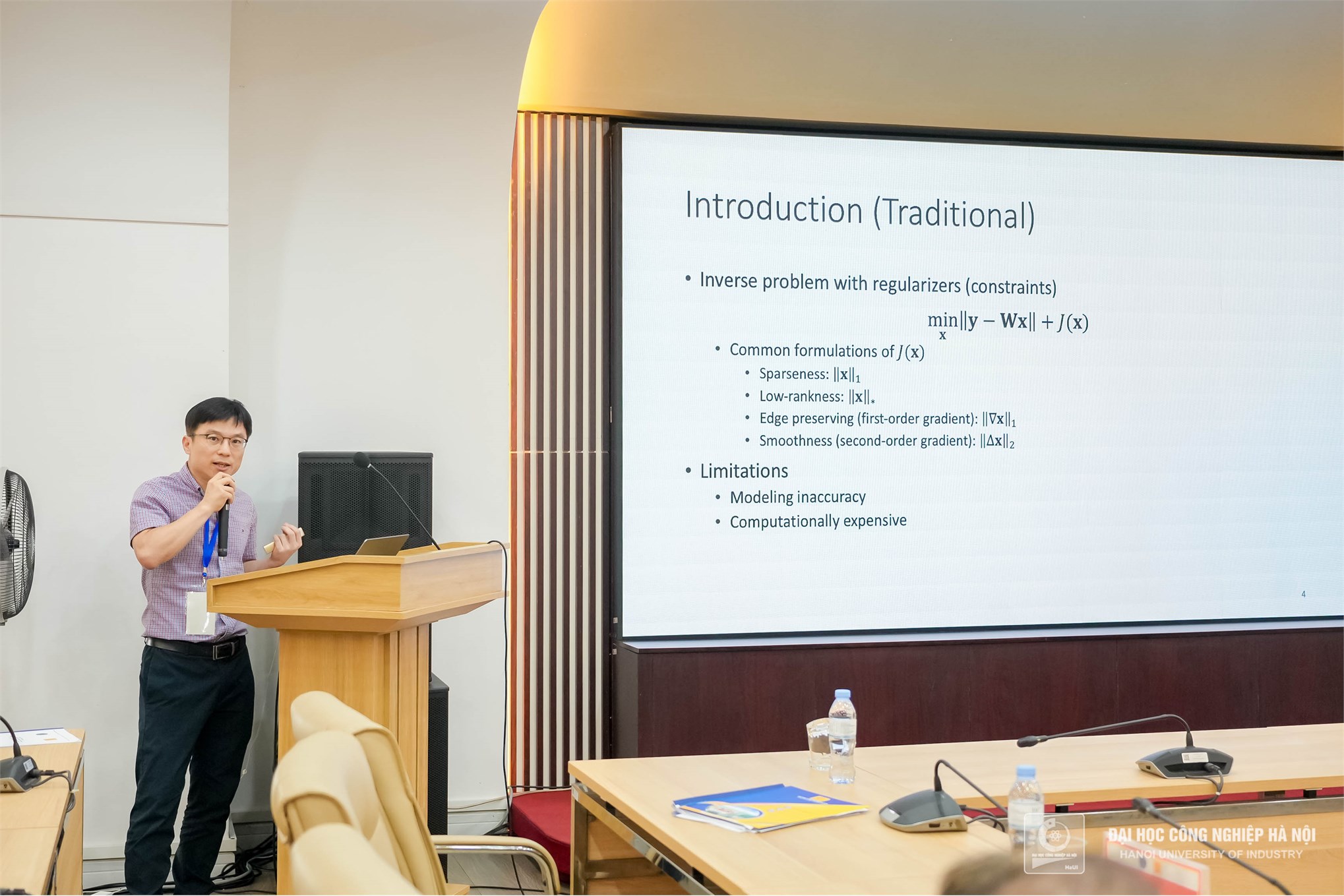
Prof. Chul Lee from Dongguk University, South Korea, discussed "Model-based Deep Learning for Low-level Vision."
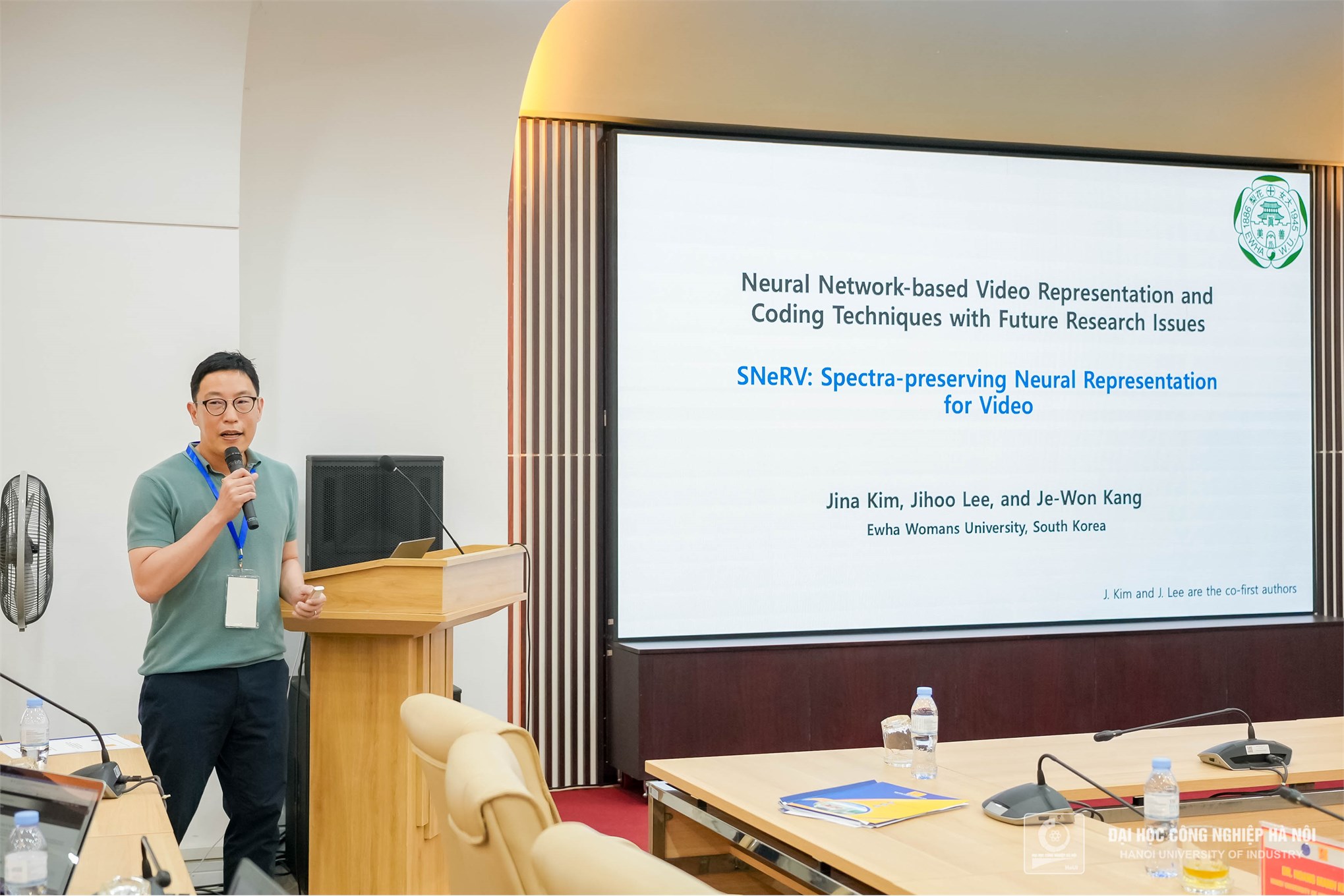
Prof. Je-Won Kang from Ewha Womans University, South Korea, presented on "Neural Network-based Video Coding Techniques with Future Research Issues."
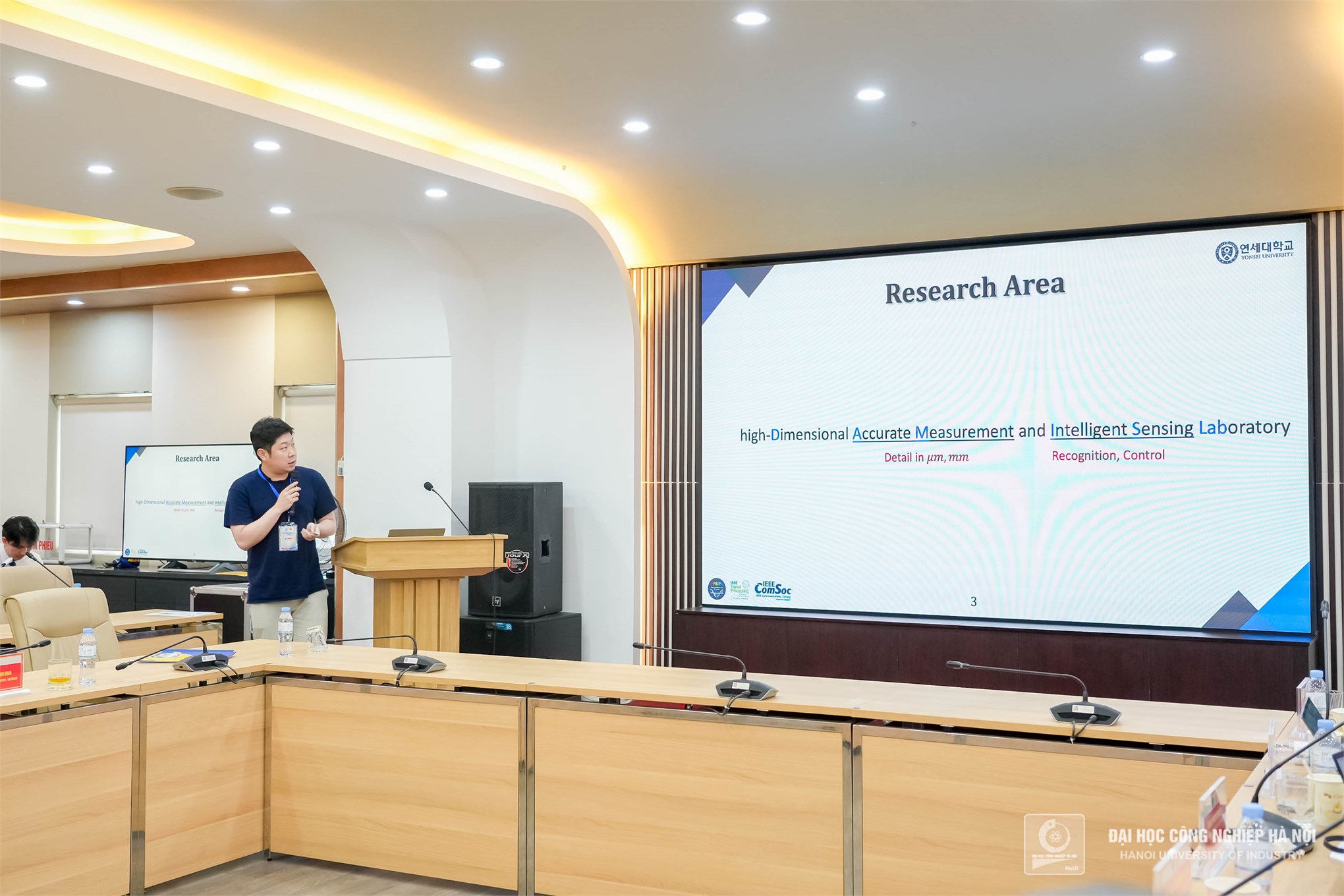
Prof. Jae-Sang Hyun from Yonsei University discussed "Advances in High-Resolution 3D Modeling with Structured Light."
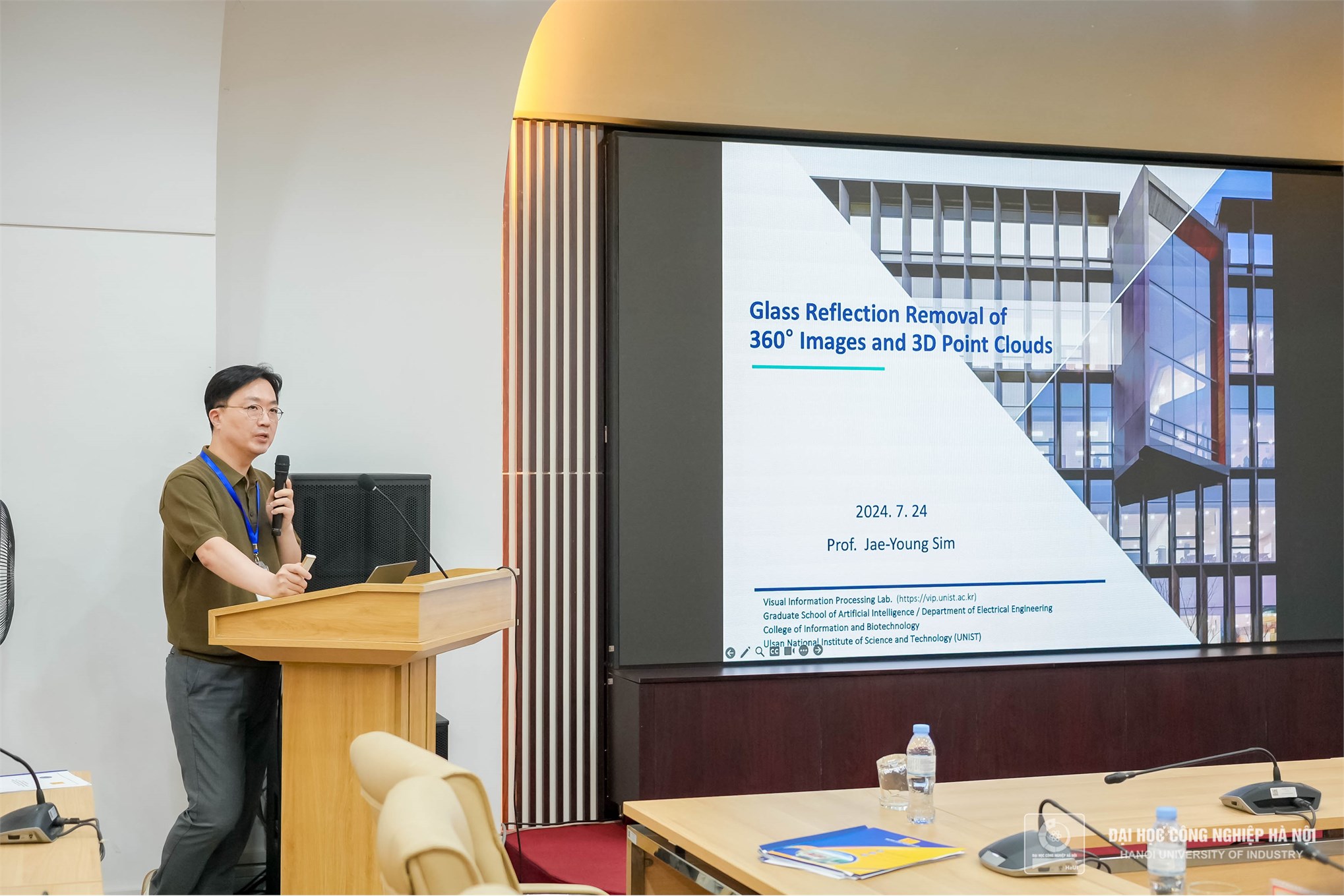
Prof. Jae-Young Sim from Ulsan National Institute of Science and Technology presented on "Glass Reflection Removal of 360° Images and 3D Point Clouds."
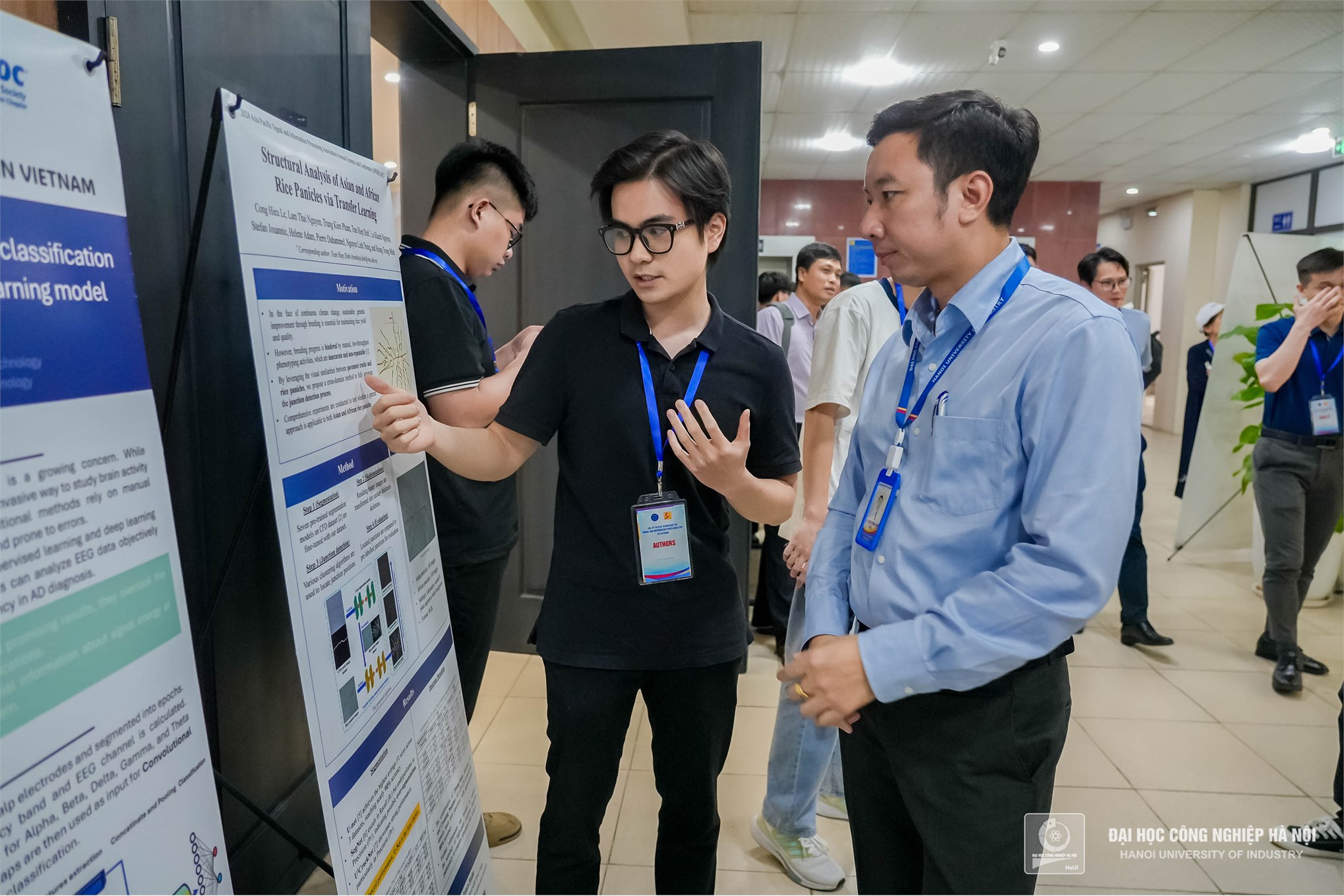
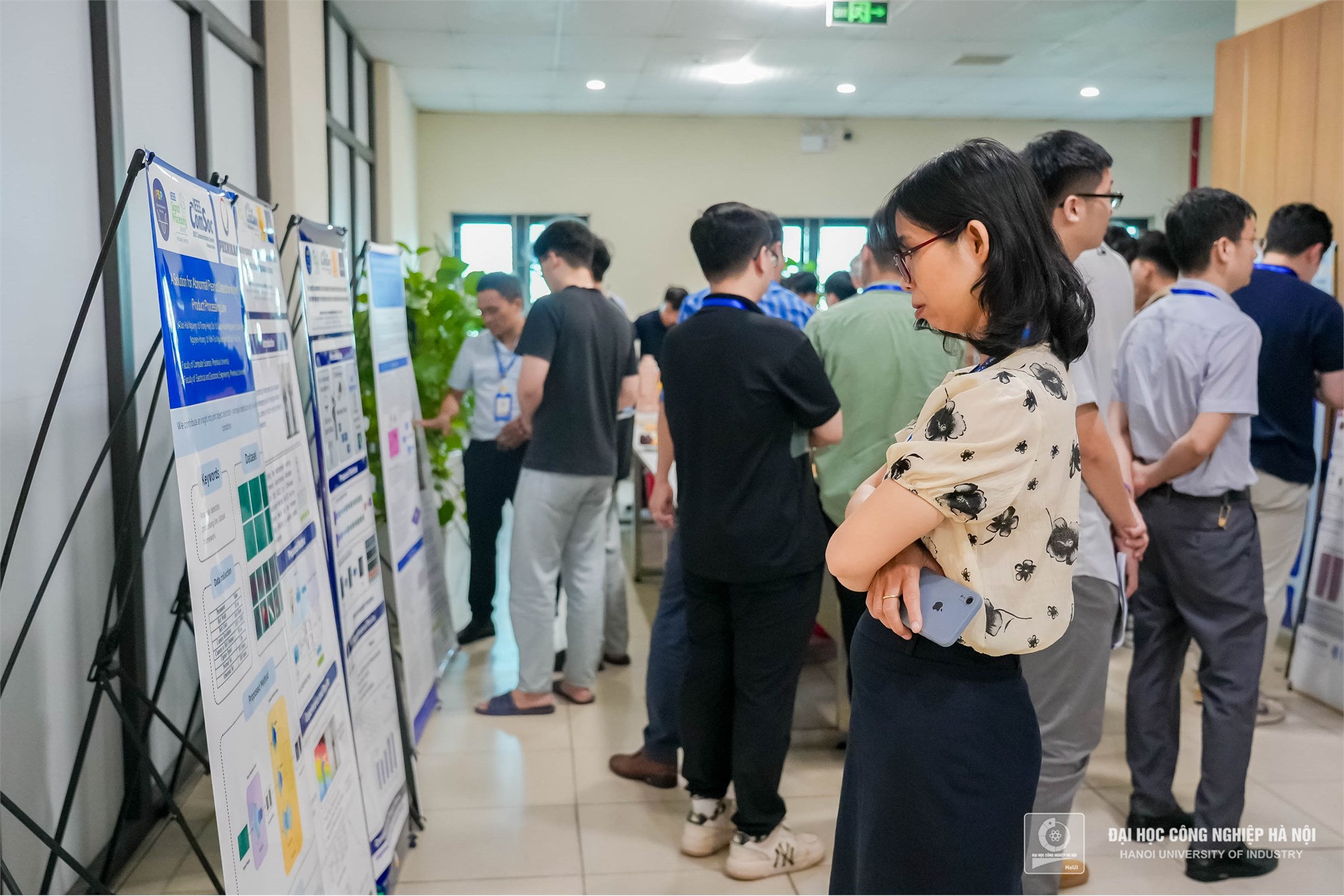
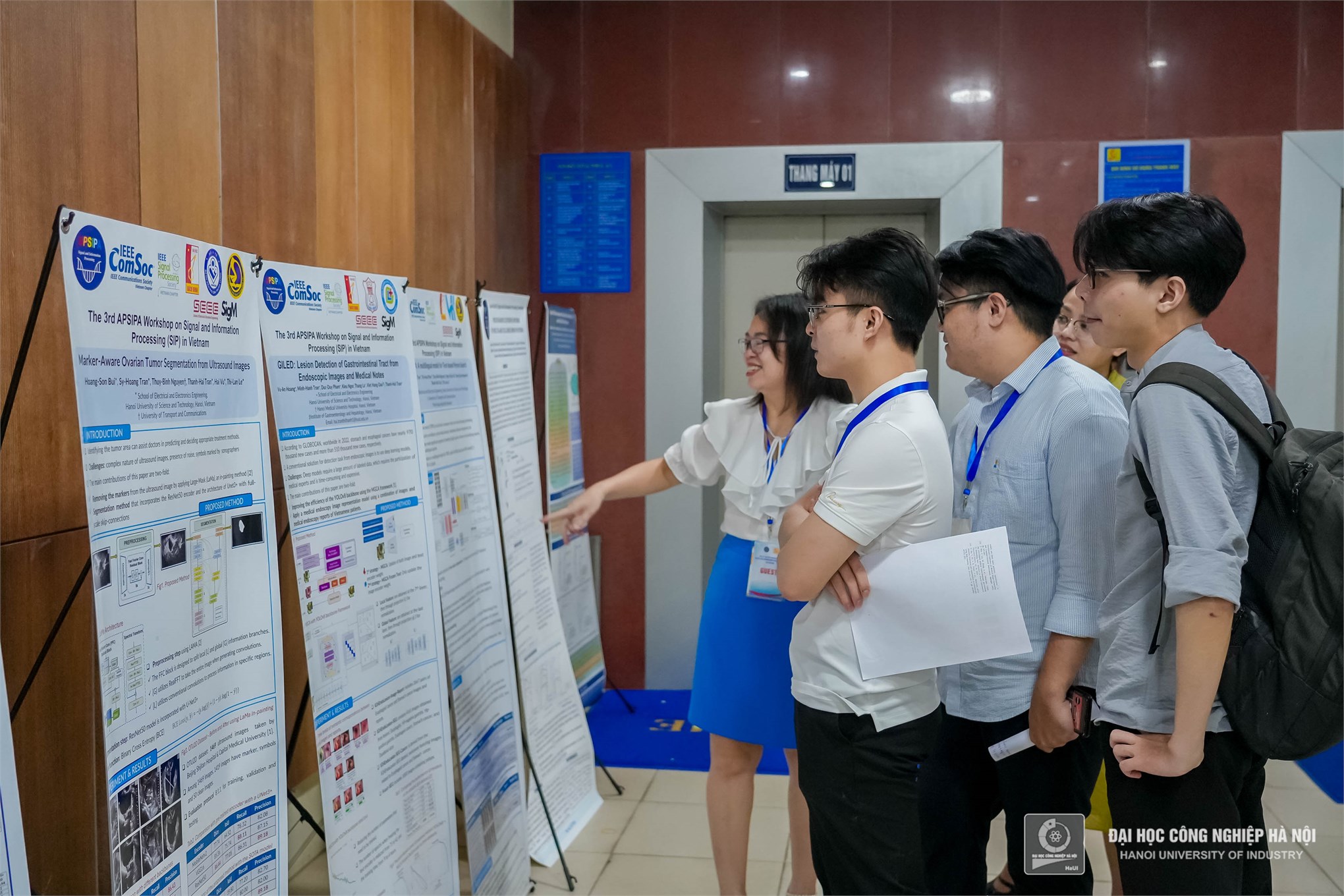
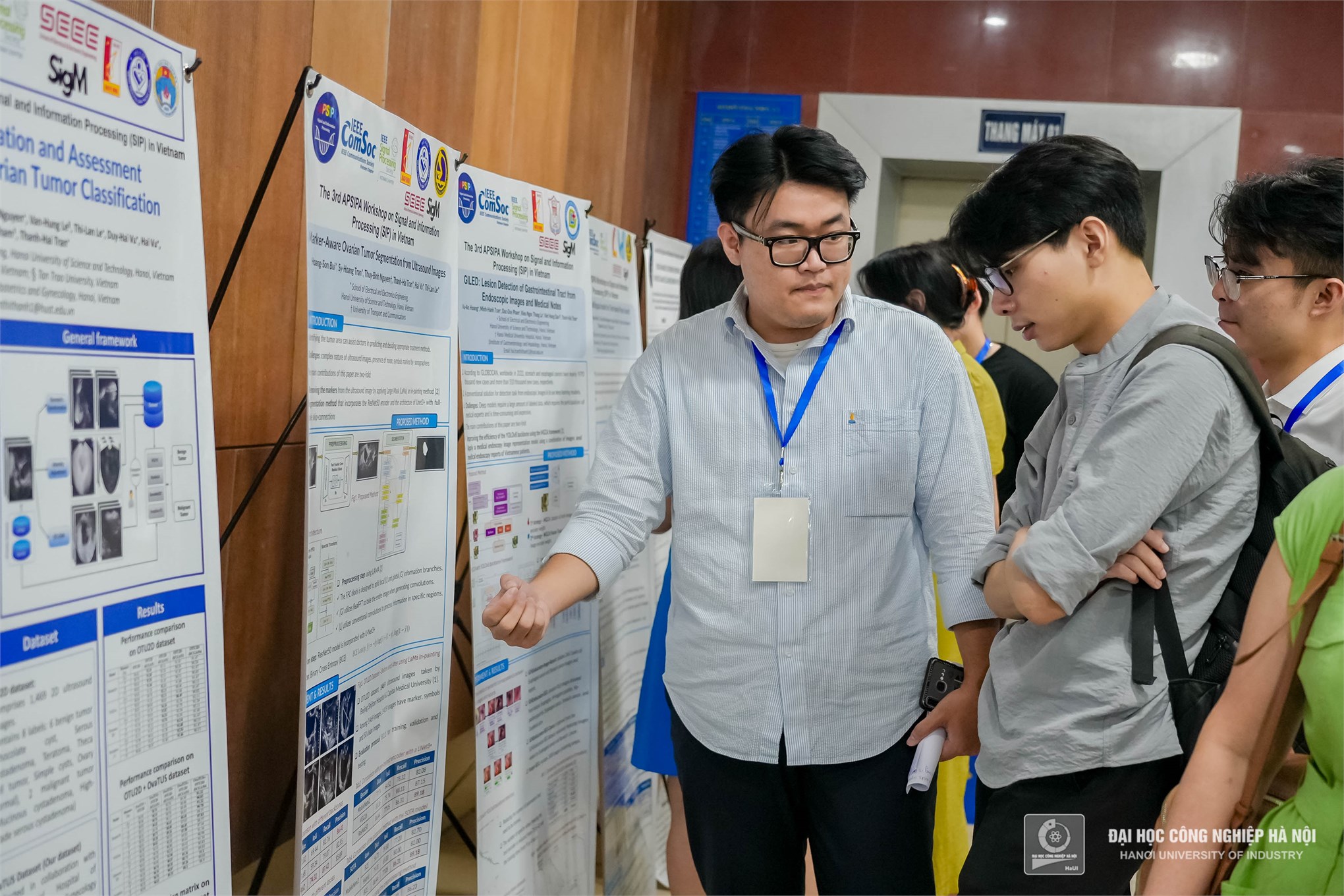
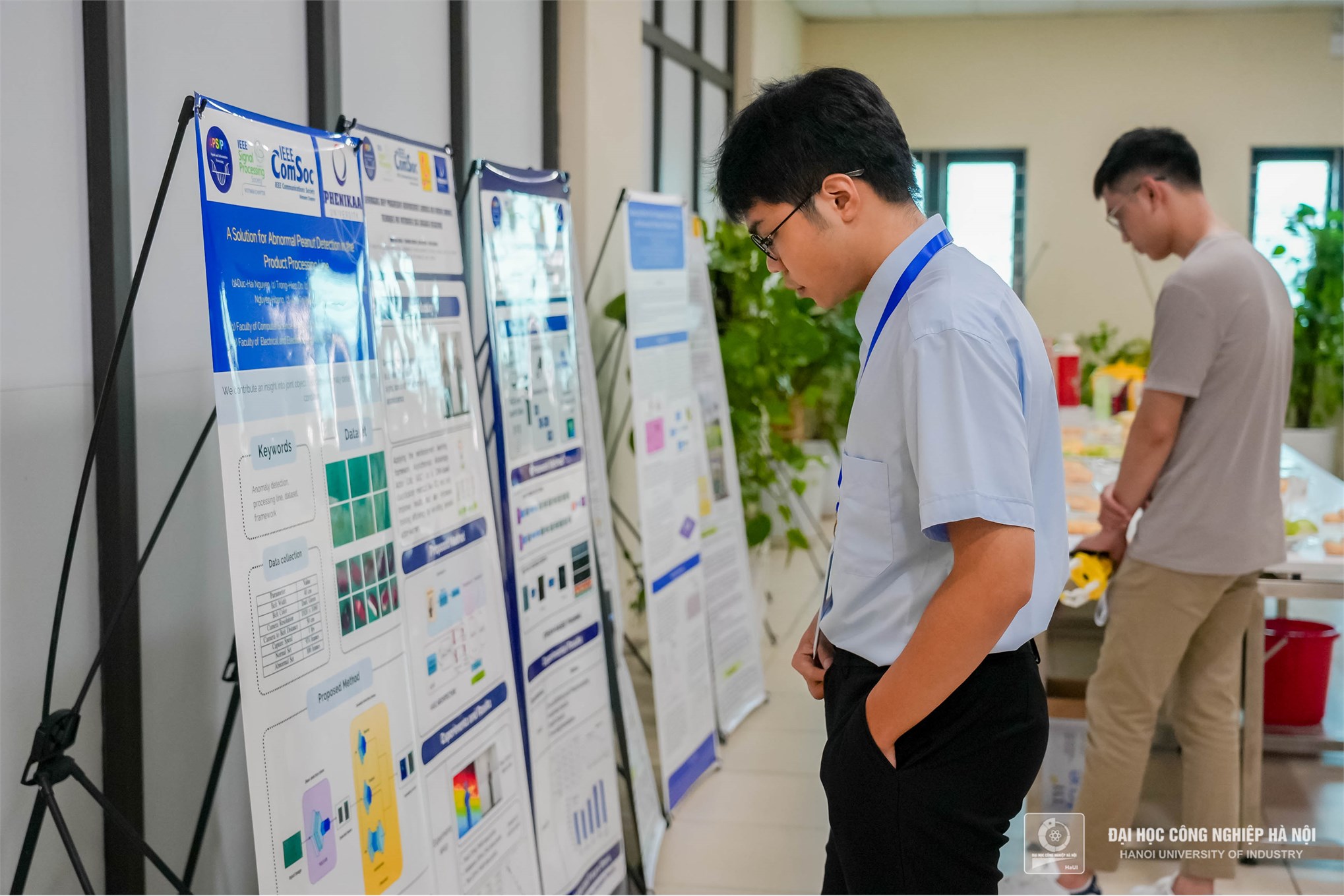
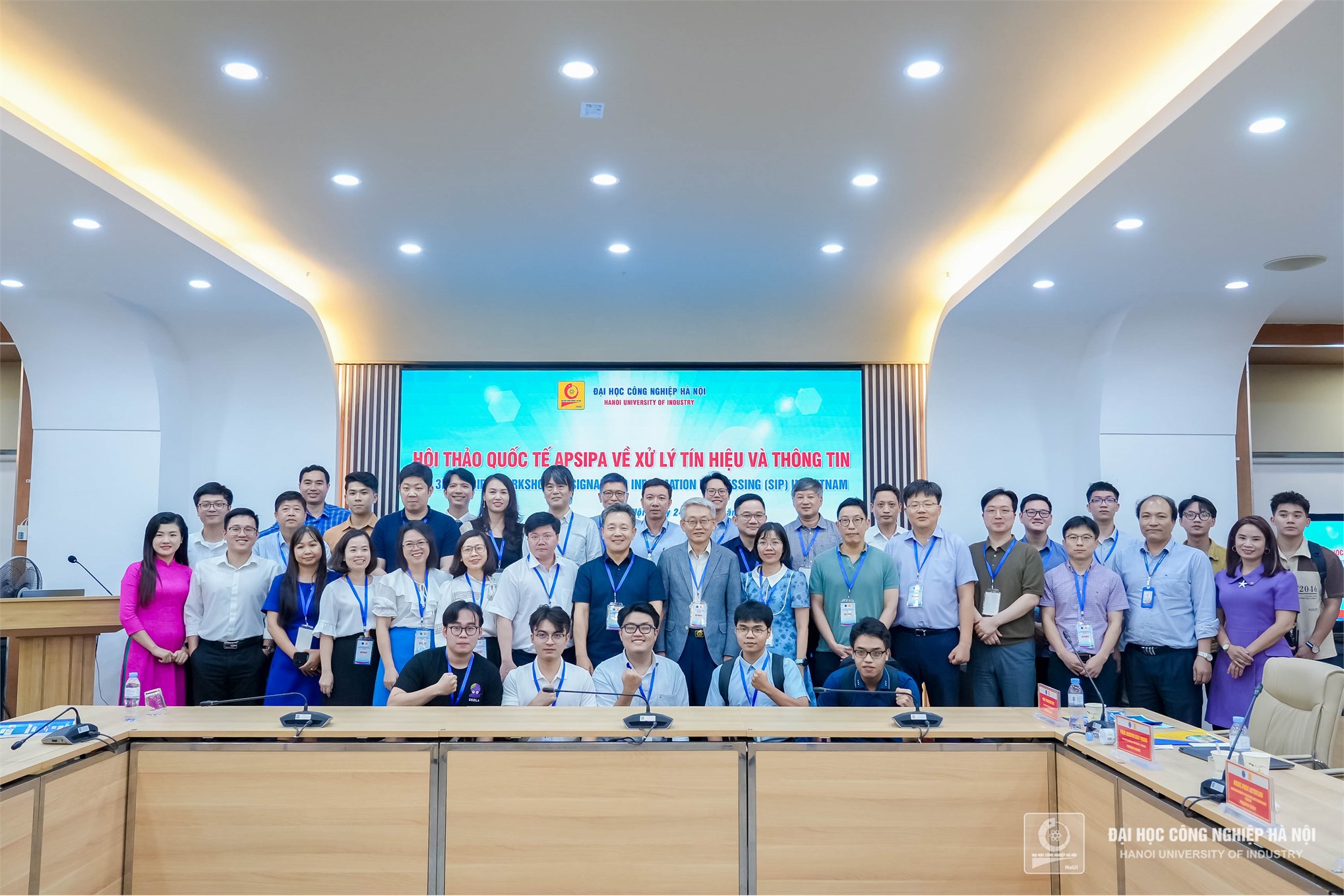 The workshop attendees took group photos
The workshop attendees took group photos

